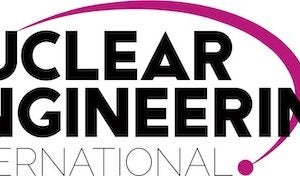
Launched in January 2012, the 18-month Certificate of Nuclear Professionalism (CoNP) comprises seven different modules covering topics from nuclear fundamentals to leadership, project management and commercial awareness. The full course costs up to £7000 per student.
The qualification was developed by the UK National Skills Academy for Nuclear in collaboration with The Open University. Training is delivered by three employer-selected university partners: the Open University, the University of Central Lancashire (Preston), Aston Business School (Birmingham) and industrial partner 20:20 Business insight, which is offering courses in Bristol and Cumbria in 2014.
CoNP does not provide the technical background required for professionals in the nuclear sector. Instead it builds upon the knowledge and expertise that they already have, and gives them the wider skills to work as a professional within the sector.
The balanced structure of the course, delivered by both academic and industrial lecturers, made it a winning proposal, according to the judges.
Developed by the industry for the industry
Employers have been the driving force behind the certificate. An industry panel with representatives from employers — including the Office for Nuclear Regulation, Cavendish Nuclear, the Nuclear Decommissioning Authority, EDF Energy, Atkins and Rolls Royce — helped devise the course alongside higher education and skills bodies.
These employers clearly articulated the importance of having graduates with a good knowledge and understanding of both the cultural environment, and behavioural standards in the nuclear sector.
The resulting Certificate of Nuclear Professionalism includes seven modules: three focussed on nuclear related scientific skills development, and four modules providing the behavioural, commercial, communication and project management skills that are so important to the nuclear industry today.
Judge David Whitmore, Atkins global engineering and technical director described the course as an "Easily-accessible nuclear professionalism qualification giving existing practitioners a top-up in the nuclear skills needed to adopt leadership roles in the nuclear arena."
Course structure
Training is primarily classroom-based, although two modules are also offered in an online format, improving accessibility. Registered learners also have access to the Open University’s virtual learning environment, tutor support, student forums, and resources and library.
Classroom-based modules are typically limited to 10-12 students and represent around two days of learning away from the workplace. Online modules can support much larger cohorts of up to 100 students.
Module assessment is typically by examination, a structured interview and a case study carried out in the student’s own workplace. The final assessment consists of an Integrative Paper where the learner has to demonstrate how the modules are integrated in practice and the impact of the learning on their behaviour. This is evaluated by the Open University, who awards 30 CATS points upon successful completion.
First graduates due in January 2014
To date 60 individuals have registered on the full programme and the first graduates are expected in early 2014. Over 200 learners have undertaken specific modules from the CoNP, which can also be completed as standalone courses. The first cohort of 39 graduates from the NDA completed the commercial awareness module at Aston Business School in January 2013.
The programme was designed to enable employer in-house delivery for assured providers, and this flexibility will be provided in 2014.
Other shortlisted courses
- AREVA General Management Programme
- Engineering Doctorate (EngD) in Nuclear Engineering (University of Manchester)
- EPSRC Nuclear First Doctoral Training Centre (Universities of Manchester and Sheffield)
- European Masters in Nuclear Applications, EMiNA (FH Aachen University of Applied Sciences)






